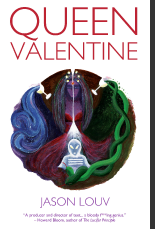Eyes Never Sleep: Occupying Singularity
1. Teevee Light
We live in a post-panopticon culture, and everybody’s watching.  Occupiers watch bankers, bankers watch farmers.  Farmers watch their crops in infrared.
We all watch: that’s the active media myth we see played out daily.  The same basketball game, the same GigaOM Post, the same Funny or Die short, the same #hashtag:  we are all watching it together, even if in separate rooms.
But this is a gross oversimplification, and in it we must look at an important nuance: even if we were looking at the same stuff, would we be watching?  To watch requires attention.  But attention is lacking: we’re all surfing, tweeting, bitching, and twitching inattentively. Spastically.  Our minds are crashing on media moments like Aquafina bottles from the Pacific Trash Vortex rolling up onto the sunbathed Southern tip of Papa‘apoho.  Our attention bifurcates on shoals of Kardashian.
We don’t watch anything.  We just look at shit.
2. The Transhuman Toehold in the Present = The Advent of Sousveillance.
In my former town (DFW, NoTx), cameras are everywhere.  Many or most traffic intersections have surveillance cameras, even those without photo-enforcement.  Of course they’re all over private properties, government buildings, and official vehicles.  It seemed to happen suddenly.  Sometime over the last five years, while I was zipping along on the Interstate switching the radio from left to right to NPR, the cameras blossomed.  We’d been warned that it was coming.  But who pulled that trigger?  I wondered whether to call the mayor, the sheriff, my state representative… Then I got busy moving to the Middle East.
You want to do surveillance right?  The UAE gets it on properly.  Few cops on the road here — it’s all done with auto-cameras and radar boxes every klick or so.  If you are in the public square (or in the cracks between), you’re probably being recorded.  Your antagonists, your allies: all record it all on phones.
Even now, it seems that the surest way to mitigate state/corporate surveillance is sousveillance. The Arab Spring (and it’s descendant Occupy Wall Street actions) taught us a lot about “state gaze.† And we do know that when we stare back and do not blink, we can (when winds are are with us) muscle into formerly denied cognitive space.  We can occupy the panopticon.
3. Flash Mob Head Space Eats Time
Grant Morrison made a comment (at Disinfo Con back in 2000) Â to the effect that the more cameras the government puts up, the more weirdly we all act — because we have more opportunities to perform more and more wildly in more and more unexpected places. Â How weird can we act before we really, truly, become the strangeness we perform? Â And how strange can we become, in this odd dance with media and technology, before we flit into Singularity with a joke, a faux pas, a cliche, a gesture of wrist or skirt or riding boot?
If the Singularity eats the state, the corporation, the ego, and all economies (as some suppose it may be able to — or must necessarily do), we find the continual pressure of state/corporate gaze pushing us into revealing ourselves as Dancers at the End of Time. When we become posthuman, such state structures are obviated entirely.
So… they watch and we watch, We act out and we get weird, and weird gets us. Â We merge with the watchers and the media by which the watching gets done.
We become the sci-fi fictions we create for their cameras.
Then it all floats away like a dandelion seed on a stiff breeze, just as we thought the denoument was gonna bring us down. Â It comes like a thief in the night.
We blow “the past†a kiss, our last blush of artifice as performers before this Future we’re flirting with becomes terribly and totally Real.
And we then begin to occupy reality.
Woody Evans writes books and stories and essays. He’s from Mississippi.


